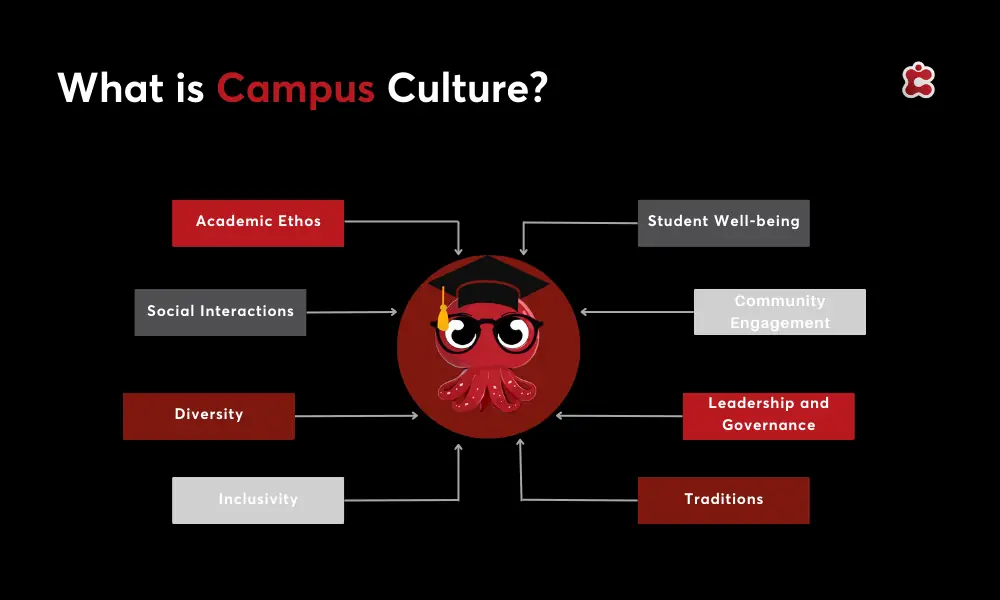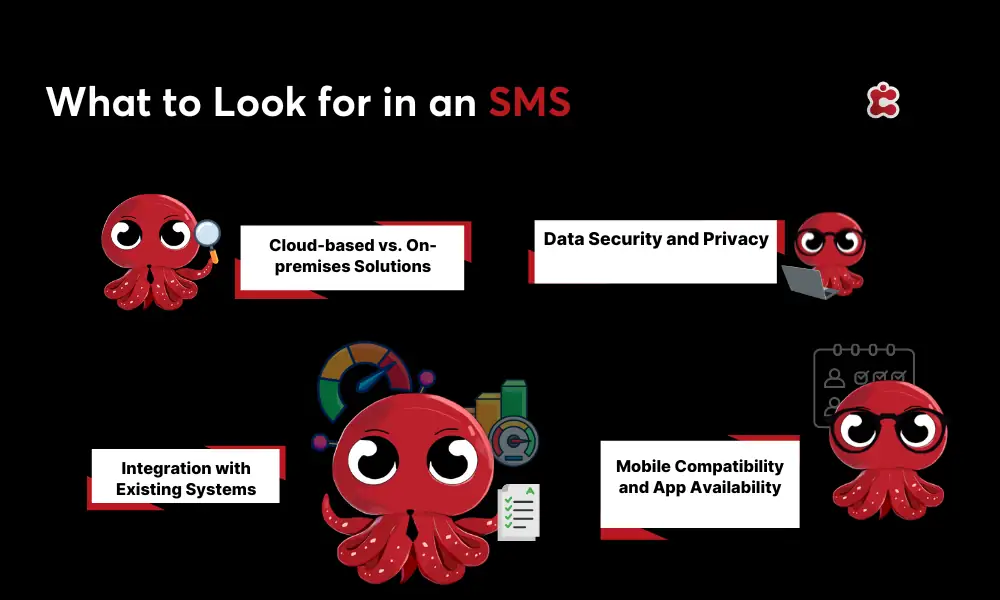What comes to mind when you think of the word “culture”? It might evoke images of art, music, or traditions. But when we talk about campus culture in colleges, we’re referring to something equally rich and impactful. Campus culture encompasses the values, traditions, behaviors, and shared goals that define the college experience.
So, why should we care about campus culture? Simply put, a positive campus culture can make or break a student’s college experience. When students feel connected to their college’s values and community, they’re more likely to excel academically, stay engaged, and participate in campus activities. It creates a sense of belonging and motivates everyone to contribute to a vibrant, supportive environment.
But building and maintaining this kind of culture isn’t always easy. We will show you how to use your School Management System (SMS) to tackle these challenges effectively. With the right strategies and technology in place, you can create an environment where everyone feels valued and motivated to contribute.

What is Campus Culture?
Let’s start by getting into the heart of what campus culture really is. Campus culture encompasses the collective values, traditions, behaviors, and shared goals that shape the college experience. It’s the atmosphere and environment created by the interactions and relationships among students, faculty, and staff. This culture influences how individuals engage with their surroundings and each other, contributing to a sense of belonging and community.
Here are some key elements that contribute to campus culture:
- Academic Ethos: The common commitment to scholarly excellence and intellectual curiosity that guides the educational environment.
- Social Interactions: The way people connect, communicate, and build relationships within the campus community, shaping everyday experiences.
- Diversity: The variety of backgrounds, perspectives, and experiences that enrich the campus environment and foster a broader worldview.
- Inclusivity: The active efforts to ensure that all individuals feel welcome, respected, and valued, regardless of their differences.
- Extracurricular Activities: The range of clubs, organizations, and events that allow students to pursue interests, develop skills, and engage with peers.
- Community Engagement: The involvement in activities and initiatives that extend the college’s impact and connect students with broader societal issues.
How School Management Systems Can Enhance Campus Culture
Although campus culture may seem like a far-fetched concept, School Management Systems can play a pivotal role in shaping and enhancing it. These systems are more than just administrative tools; they are powerful platforms that can help colleges build a thriving, cohesive community.
One of the main benefits of school management systems is their ability to streamline communication across the entire campus. With everything centralized in one platform, students, faculty, and staff can easily stay informed about events, announcements, and updates. This seamless communication fosters a stronger sense of community and ensures everyone is on the same page.
Moreover, these systems support collaboration by providing tools that facilitate group work, discussions, and project management. By enhancing how people work together, SMS help break down silos and encourage a more collaborative culture. Whether organizing study groups, coordinating extracurricular activities, or planning campus-wide events, these tools make it easier for everyone to contribute and participate.
Additionally, SMS is instrumental in supporting cultural initiatives. They allow institutions to track and promote cultural events, diversity programs, and inclusion efforts. With data-driven insights, colleges can measure the impact of these initiatives and make informed decisions to continually improve campus culture.
Building Inclusivity: Leveraging SMS for Cultural Integration
Creating a welcoming and inclusive campus environment ensures every student feels at home. School Management Systems are fantastic allies in this mission, offering tools that help colleges integrate diverse perspectives and build a strong sense of community.
- SMS platforms make it easy to set up and promote diversity programs. Imagine using your system to roll out workshops on cultural awareness or start mentorship programs that connect students from different backgrounds.
- Inclusivity thrives on listening and adapting. SMS systems often come with built-in feedback tools like surveys and suggestion boxes. You can use these to collect input from students about their experiences and what they need to feel more included. For example, if students express concerns about campus facilities, you can address these issues promptly and effectively.
- Bringing people together through events is a great way to celebrate diversity. SMS platforms can help you organize and promote cultural festivals or discussion panels. By making event planning and communication seamless.

Measuring Campus Culture: Analytics and Feedback
Here’s a step-by-step guide on how you can use feedback and analytics from your SMS to assess and enhance your campus culture:
- Start by collecting feedback from students, faculty, and staff through the SMS’s built-in survey tools or suggestion boxes. Ask targeted questions about their experiences, perceptions of inclusivity, and overall satisfaction with campus life.
- Once you have the feedback, dive into the analytics provided by your SMS. Look for patterns and trends in the responses. Are there common themes or areas where people feel disconnected? This data will help you identify both strengths and areas for improvement in your campus culture.
- Based on your analysis, set specific, actionable goals. For example, if feedback indicates a lack of engagement in campus events, aim to increase participation by introducing more diverse and inclusive activities.
- Use the insights from your data to make informed decisions and implement changes. This might involve adjusting event formats, enhancing communication strategies, or introducing new diversity initiatives.
- Continue to use your SMS to track the impact of these changes. Collect follow-up feedback to see if improvements are being made and if the campus culture is shifting in the desired direction.
- Campus culture is dynamic, so regularly review your feedback and analytics to refine your strategies. This iterative process ensures that you’re always working towards a more inclusive and positive environment.
Classter SMS Builds Campus Culture
By spanning over 40+ countries and winning over 15 industry awards, Classter understands what goes into creating a vibrant and functional campus culture in colleges. Our School Management System (SMS) is designed to streamline operations and actively contribute to a thriving educational community.
Classter’s integrated tools ensure smooth, consistent dialogue between teachers, students, and parents. This transparency and connection help build a collaborative community focused on shared goals and student growth. Our advanced reporting capabilities allow schools to make data-driven decisions that enhance their campus culture. By analyzing feedback and performance data, schools can identify trends, measure the impact of cultural initiatives, and continuously improve their strategies. Classter SMS is built for modern colleges of all sizes.
Ready to transform your school environment? Discover how Classter can help you create a thriving educational community. Get started today!
FAQ’s
Campus culture refers to the collective values, traditions, behaviors, and goals that shape the college experience. It’s crucial because it influences student engagement, academic performance, and overall satisfaction, creating a sense of belonging and community.
School management systems enhance campus culture by streamlining communication, supporting collaboration, and tracking cultural initiatives. They provide tools for real-time updates, feedback collection, and event management, helping to build a cohesive and engaged community.
Classter supports campus culture through real-time academic tracking, integrated communication tools, and advanced reporting. It enhances connectivity between all campus members and provides valuable insights to continually improve the campus environment.

